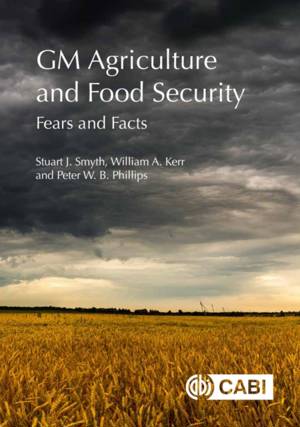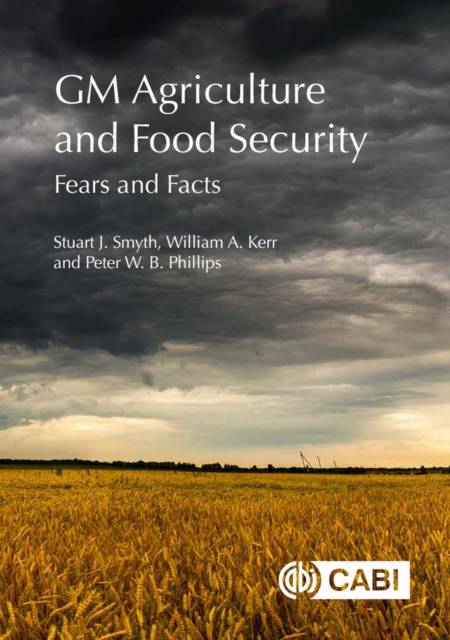
Bedankt voor het vertrouwen het afgelopen jaar! Om jou te bedanken bieden we GRATIS verzending (in België) aan op alles gedurende de hele maand januari.
- Afhalen na 1 uur in een winkel met voorraad
- In januari gratis thuislevering in België
- Ruim aanbod met 7 miljoen producten
Bedankt voor het vertrouwen het afgelopen jaar! Om jou te bedanken bieden we GRATIS verzending (in België) aan op alles gedurende de hele maand januari.
- Afhalen na 1 uur in een winkel met voorraad
- In januari gratis thuislevering in België
- Ruim aanbod met 7 miljoen producten
Zoeken
GM Agriculture and Food Security
Fears and Facts
Stuart Smyth, William Kerr, Peter Phillips
Paperback | Engels
€ 79,45
+ 158 punten
Omschrijving
Efforts to improve food security in the developing world have been hampered due to myths surrounding GM agriculture. This book explores the theory, evidence and rhetoric of the impact of food production on the environment, and the impact of the environment on food production. The chapters address: food security and technology; expertise and opportunism; the promise of technology; the politicization of risk; industrial agriculture; the meaning of 'natural'; the potential of the local food movement; food labelling; genetic diversity in the agro-industrial era; sustainability and chemical application; plant vitality; and future prospects for food security. Each chapter includes a personal introduction from the authors about the issues at hand, followed by a detailed analysis with further references. The book considers the origins of concerns and then examines the evidence around the issues, and the impacts in terms of policy, regulation and agricultural practice. It also: - Refutes common consumer and environmental organization myths about biotechnology. - Highlights the importance of food security in both the developing and developed world.- Provides a pro-science approach to increasing food security.This book will be of interest to students and researchers in biotechnology, food security and public understanding of science, and also to policy makers, regulators and industry managers.
Specificaties
Betrokkenen
- Auteur(s):
- Uitgeverij:
Inhoud
- Aantal bladzijden:
- 184
- Taal:
- Engels
Eigenschappen
- Productcode (EAN):
- 9781786392244
- Verschijningsdatum:
- 29/08/2019
- Uitvoering:
- Paperback
- Formaat:
- Trade paperback (VS)
- Afmetingen:
- 172 mm x 244 mm
- Gewicht:
- 410 g

Alleen bij Standaard Boekhandel
+ 158 punten op je klantenkaart van Standaard Boekhandel
Beoordelingen
We publiceren alleen reviews die voldoen aan de voorwaarden voor reviews. Bekijk onze voorwaarden voor reviews.









